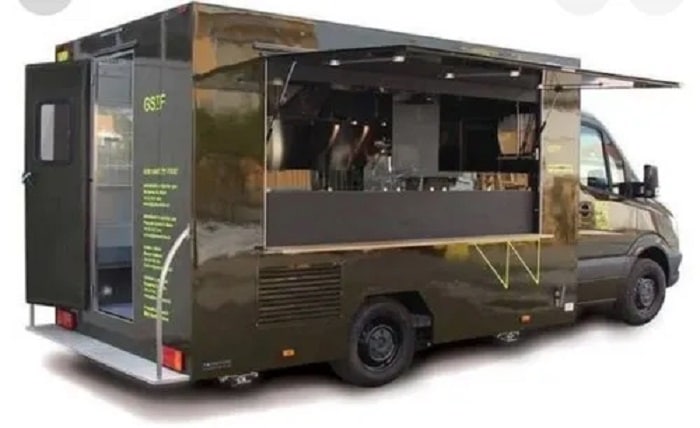Food Truck Price: How Much Does It Cost to Start a Food Truck Business?

Are you passionate about cooking and dream of starting your own food business? A food truck can be an excellent option for aspiring culinary entrepreneurs. Not only does it offer flexibility and mobility, but it also provides a unique dining experience for customers. However, before embarking on this exciting journey, it’s crucial to understand the costs involved. In this article, we will explore the factors that influence food truck prices and provide insights into starting a successful food truck business.
Food trucks have gained immense popularity in recent years, providing a convenient and innovative way for people to enjoy delicious meals on the go. Starting a food truck business allows you to share your culinary creations with a broader audience and explore various locations and events. However, like any business venture, it requires careful planning and financial consideration.
Understanding Food Truck Costs
Before diving into the specifics, let’s break down the various costs associated with starting a food truck business:
Purchasing or Renting a Food Truck
The first major expense is acquiring a food truck. You have two options: purchasing a new or used truck or renting one. Purchasing a new truck offers customization opportunities, but it can be more expensive. On the other hand, renting a truck allows you to test the market without a significant upfront investment.
Equipment and Kitchen Setup
Equipping your food truck with the necessary appliances, such as grills, fryers, refrigerators, and prep stations, is another essential cost to consider. Additionally, you’ll need to install plumbing and electrical connections to ensure a fully functional kitchen setup.
Permits and Licenses
Operating a food truck requires obtaining the appropriate permits and licenses from local health departments and regulatory authorities. These costs vary depending on your location and the specific requirements of your area.
Read more about kappacourse
Initial Inventory
Stocking your truck with high-quality ingredients and supplies is vital for delivering excellent food and satisfying customers. It’s important to consider the cost of sourcing ingredients, including any specialty or locally-sourced items you plan to use.
Marketing and Branding
To attract customers and build a loyal following, you need to invest in marketing and branding efforts. This includes designing a logo, creating a website, using social media platforms, and participating in local events or food festivals.
Operational Expenses
Day-to-day operational expenses include fuel costs, propane for cooking equipment, employee wages, insurance, and maintenance. It’s essential to budget for these recurring expenses to ensure smooth operations.
Determining Your Budget
Understanding your budget is crucial when starting a food truck business. Calculate your available funds and identify how much you can allocate to each aspect of the venture. This will help you make informed decisions and prioritize your spending.
Researching Food Truck Prices
Researching food truck prices is essential to get a realistic estimate of the costs involved. Consider factors such as the size and condition of the truck, the quality of the equipment, and any additional features or modifications you require. Consulting with experienced food truck owners or attending industry trade shows can provide valuable insights into pricing.
Financing Options
If you don’t have sufficient funds to cover the entire cost of your food truck business, there are various financing options available:
Personal Savings
Using personal savings or investment from friends and family is a common way to fund a food truck business. This option offers more flexibility and reduces the financial burden of loans.
Small Business Loans
Many financial institutions offer small business loans specifically tailored for entrepreneurs starting a food truck business. Research different loan options and compare interest rates, terms, and repayment plans to find the best fit for your needs.
Crowdfunding
Crowdfunding platforms provide an opportunity to raise funds from a large number of individuals who believe in your business idea. Creating an engaging campaign and offering unique incentives can help attract potential backers.
Tips for Cost Management
Effectively managing costs is crucial for the long-term success of your food truck business. Here are some tips to help you keep expenses under control:
Pre-Owned Equipment
Consider purchasing pre-owned kitchen equipment in good condition. This can significantly reduce your upfront costs while still maintaining quality.
Strategic Location
Choose locations strategically to maximize customer traffic. Partnering with local businesses or participating in community events can provide exposure and attract more customers.
Streamlined Menu
Creating a focused and streamlined menu not only simplifies operations but also helps with inventory management and cost control. Offering a few signature dishes that highlight your culinary expertise can make your food truck stand out.
Efficient Inventory Management
Implementing efficient inventory management practices ensures you have the right amount of ingredients and supplies on hand, minimizing waste and optimizing costs.
Collaborations and Partnerships
Collaborating with other food truck owners or local vendors can create mutually beneficial partnerships. Joint events or promotions can help increase visibility and attract a wider customer base.
Conclusion
Starting a food truck business requires careful planning and consideration of various factors, especially the costs involved. By understanding the expenses associated with purchasing or renting a food truck, equipment and kitchen setup, permits and licenses, initial inventory, marketing, and operational expenses, you can make informed decisions and set a realistic budget. Exploring financing options and implementing cost management strategies can further enhance your chances of success.



